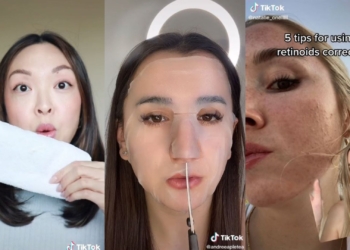Formulating a skincare regimen can be tricky, especially if you have eczema. That’s because the outer layer of your skin is weak and very sensitive to certain products. People who have eczema need to give extra TLC to their delicate skin, and choose precisely the right products to avoid aggravating their condition.

According to dermatologists, eczema is very manageable if you eat the right foods and practice an eczema trigger-free lifestyle. Here’s what you should AVOID if you have eczema, because triggering it can get pretty ugly.
1. Taking an extra hot shower
It can be tempting to sink yourself in the hot tub or enjoy that extra hot bath after a long tiring day. While all that seems nice, it’s not the case if you have eczema. Taking an extra hot shower is a big NO-NO because it can dry your skin out further.
“Hot water is rough on our skin and can irritate and damage our skin barrier. Patients with eczema already have a damaged skin barrier layer, and over time, hot showers just make it worse,” says Papri Sarkar, MD, a board-certified dermatologist based in Brookline, Massachusetts, USA.
If you must take a hot shower, it’s best to layer your skin with oil first to protect it slightly and try to keep it hot for a short time only.
2. Staying too long in the shower
Similar to taking a hot shower, taking a long relaxing bath under the comforting stream of water can dry out your skin.
“Excessive exposure to water, especially at hot temperatures, strips the skin of essential oils needed to maintain a healthy skin barrier,” says Joshua Zeichner, MD, a board-certified dermatologist in New York City. “Keep your showers to 10 minutes or less.”
3. Exfoliating your skin
If you have eczema, you should not be using any exfoliating products. Not only can they be abrasive on your sensitive skin, but they contain chemical exfoliants, such as AHAs, BHAs, and enzymes which can make your eczema worse.
If you notice dry skin on your body, you need hydration. So try ways to ensure that your skin maintains its moisture. Exfoliating already-dry skin can lead to more harm than good.

4. Skipping on the moisturizer
It’s highly recommended to give your skin a good boost of moisturizer after a gentle cleanse. If your skin is always hydrated and moisturized, it leaves little room for itchiness.
“You can’t control your genes, but you can control your skincare routine,” says Dr. Zeichner. “We know that the entire skin surface area is dry – not just areas where you have active eczema outbreaks – so regular application of a moisturizer is a must.”
5. Getting overly stressed
Stress is not only a trigger of eczema but also of many other health problems. However, living a stressed life or managing intense stress at work might not be good on your eczema problem. Getting stressed can take a toll on your body and can even lead to an eczema flare-up.
While eliminating stress entirely is almost impossible, adding a de-stressing ritual in your daily life can help to keep stress at a minimum level.
“Most diseases, skin and otherwise, flare with stress. This is especially true for inflammatory diseases like acne, psoriasis, and eczema,” says Dr Sarkar. “In this day and age, it’s almost impossible to avoid stress completely without going off grid, but if that isn’t an option (or desired), adding a de-stressing ritual to your day can help.”
6. Letting the air get too dry
People with eczema already know what dry weather and air can do to their skin. If the air around you is too dry, you can always introduce a humidifier at your home or office.
“Using a humidifier can help restore hydration to the other skin layers keeping the skin in as good shape as possible – [even] while you sleep,” says Dr. Zeichner.










